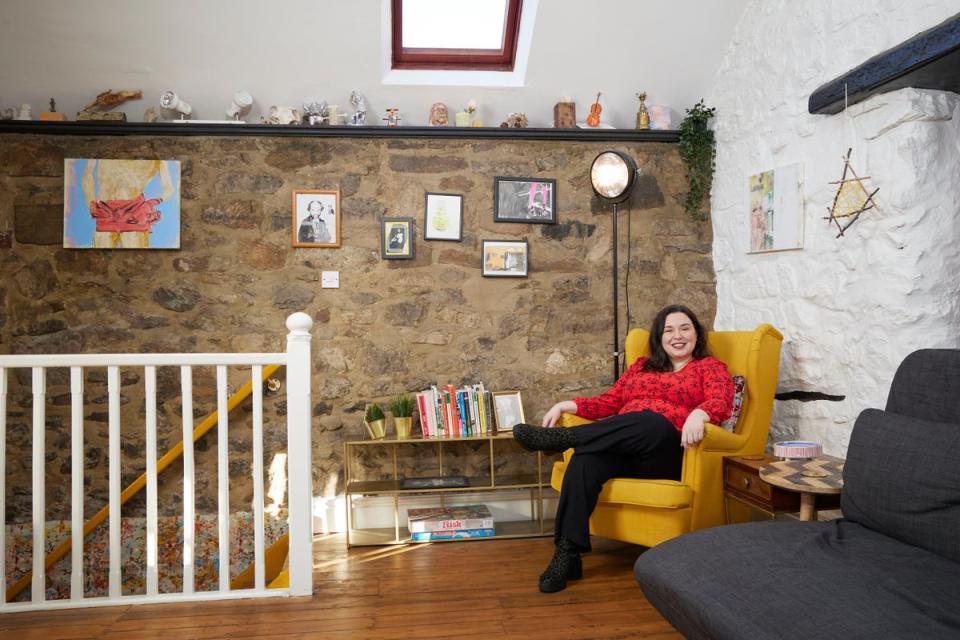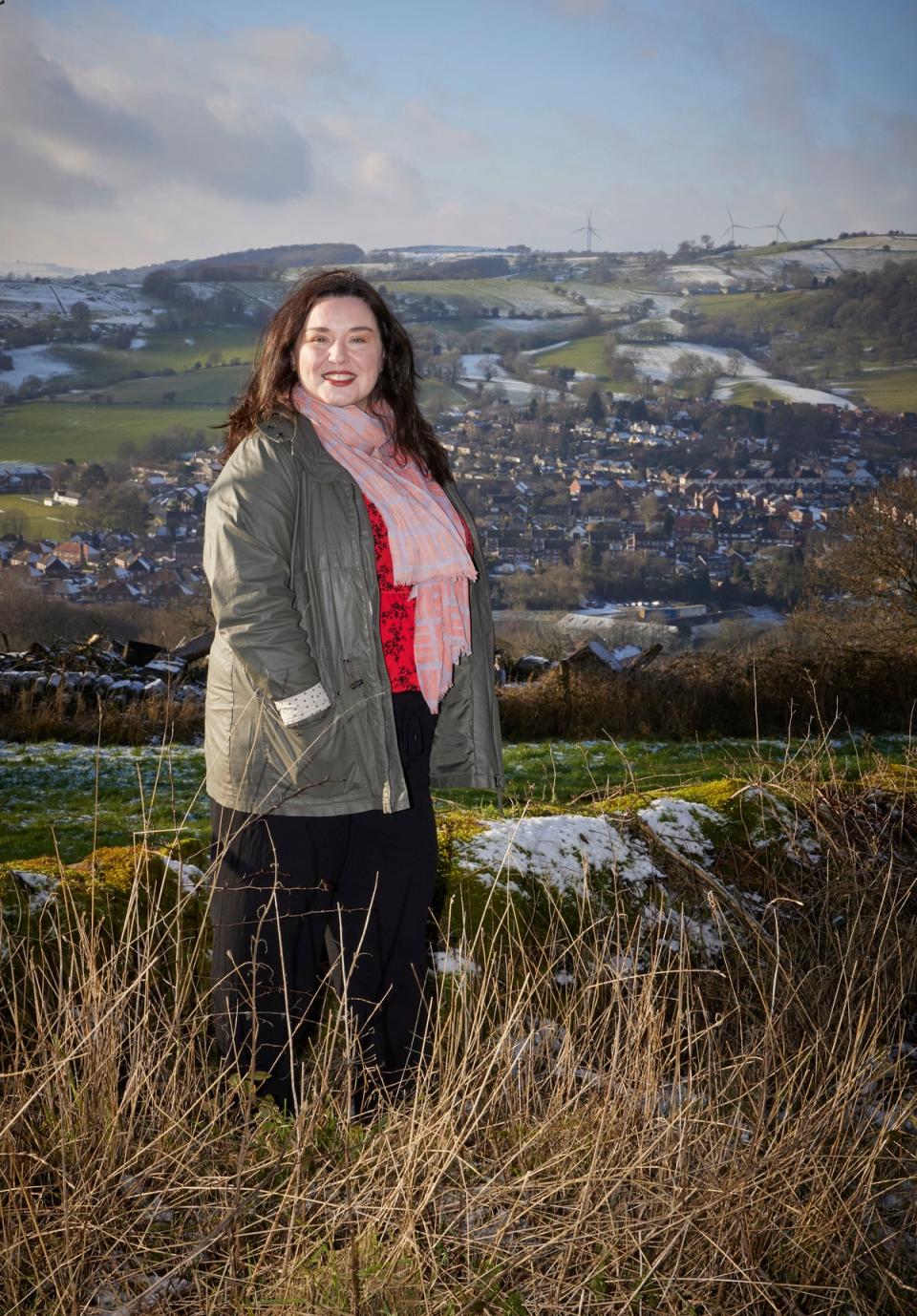‘I moved out of London to the countryside... and hated it!’

For any Londoner, there’s nothing quite like “a weekend in the countryside” for a swift, three-day reset. The countryside, by design, is what many crave: long, muddy walks in the woods, a cosy country pub in which to discover a new, local ale, and lush green hills rolling from your kitchen window. It really is rather wonderful. And a long weekend is ample enough time to reinvigorate the soul for another week.
But sometimes the weekend doesn’t feel quite long enough. So my husband and I decided to try out a more rural, slower life. We had always mulled over a move to the countryside, so nearly half a year ago, we took the opportunity to test out what it would be like on the other side while our flat was being renovated.
We found ourselves in a small, market town in the heart of the Derbyshire Dales after friends kindly let us stay at their home. The town itself is something straight out of a picture postcard of a traditional country idyll: cobbled streets, attractive stone buildings, and views of fields and cattle as far as the eye can see. During the first few weeks, I was sold on the dream. I wondered if perhaps this was a better living alternative? Could a gentler pace of life be more beneficial for a person’s happiness and wellbeing? However, after spending three seasons here, all of which have given me a greater understanding as to the actual realities of country living, my views have changed somewhat.
In recent weeks, I have noticed my mood suddenly take a dip, and while I was throwing myself into the experience, trying to make the best of things, my anxiety has got the better of me, and I find myself feeling more isolated than ever. The start of the year is a gloomy and quiet time for us all, but in a small market town it feels grey, desolate and so unnervingly quiet. I always find Mondays the worst, as almost everything is shut.

When we first arrived, during the height of the summer, the town vibrated with life, as their annual festival was just around the corner, and a continual stream of activities were taking place throughout the week.
Each weekend, the town filled with the local community: artists exhibiting their latest works, street food vendors congregated in the local square, and there was barely enough space to walk side by side on the narrow streets. I eagerly highlighted each local event, wanting to fill my calendar with any number of diversions, but, like any season, it can only last so long. As summer transitioned into autumn, the thrum of activity started to wane, with a lot less on the daily calendar.
Recently, on one rather miserable start to the week, I passed by the handful of shops and cafés dotted around and barely a single place was open. The one café I could find was packed to the rafters, as if everyone was also clamouring to find some semblance of life and human contact. As I continued my walk, my ‘usual’ café was not open, nor a single other place for that matter, and the feeling of loneliness was palpable. For me, there is simply not enough going on to truly make country living a sustainable prospect. I think, perhaps, the countryside has held a mirror up to my own personal anxieties. Or maybe I’m just homesick?
London is the city of ‘choice’ and it is geared for all eventualities and tastes. My husband and I adored the social drinking scene in London, especially pub life, and on any given evening we could discover a new micro-brewery, or the latest cocktail bar opening, and all within walking distance from our flat in the south-east of the city. The capital’s accessibility to an endless stream of options is something we took for granted.
Here in the countryside, there are no such options — so our saving grace has been the nearby pub. The landlord truly cares about locals, and I have observed, first-hand, the warm exchanges of years-old friendships. Initially, we felt slightly cast adrift as the new additions, but as we kept turning up, night after night, sitting at the same table, we gradually melded as part of the experience, not just the ‘outsiders’.
On one particularly funny evening, one of the regulars pulled up a chair beside us, didn’t say a word for at least 20 seconds, and then when I finally asked, “How are you?” he started chatting about the ins and outs of his day, barely pausing for breath, as if he had known us all our lives. I felt in that half hour, I got to know more about this man than some of my own relatives. The human connection was, and is, very much appreciated — but it remains an experience unlike any one I had ever encountered before.

The pub became (and still is) such a lifeline for our sanity. It’s a fixture of our entire evening’s entertainment. It does make me wonder, however, whether that in itself was entirely healthy. For me, the fact that there would be such reliance on one place for our evening’s activity was something that has been playing on my mind. Unlike London, if a beloved pub or café closes down, however sad that may be, there will always be something new in its place. Here, if that one lifeline shut down, we would have nothing — no social life, no entertainment. And that’s the crux of the issue: a city offers you choice.
The word ‘choice’ echoes around my head on a daily basis. The choice, for example, to visit a café entirely depends on whether it opens that day, and we have found that it is difficult to plan ahead, especially on the weekend. I think back to lazy London brunches where our favourite local would always be open come rain or shine. Luckily, I have found solace in one particular venue that seems more reliable than most. In recent weeks, I have found it to be a refuge in the drizzly rain and cold, and an opportunity for a change of scenery even though it’s one of the only options available. I see the same faces ordering the daily tea and cake special and we exchange warm glances.
I even realised that having a 24-hour pharmacy (something I hadn’t even considered before) is so utterly vital, particularly for someone as disorganised as myself. Two weeks ago, after suddenly realising I needed to urgently pick up my prescription, I found the doors of the pharmacy already locked by 5.30pm. As I peeked into the window, desperately hoping to see anyone about, I realised in that moment how utterly spoilt I had been in London: always able to pick up what I needed at pretty much any time of the day or night, and at a time frame that suited. I quickly came to the conclusion that organisation was absolutely key to getting the services you required within the set hours allotted. You don’t have a choice on that matter.
London has been a fixture on my mind ever since we packed up the car and drove the three-and-a-half hours up to the Derbyshire Dales. I’m impatiently waiting to rejoin with my former self in London. It is the city where I fell in love with my husband, made lifelong friends, enjoyed the best food I’d ever eaten, saw my first major art exhibits and world-class theatre… each experience like a part of my mental tapestry that now feels pulled at and knotted as I ache to get home.
My time in the countryside has also answered the burning question all Londoners ask themselves at some point: is it time for a move to the country?
In the evenings, I spend much of my time in front of the TV, and come across any number of property programmes with couples and families making the move out of the city, more often than not for more ‘space’ or a ‘bigger garden’.
As I watch them excitedly chat to the presenters about their plans for their new abode, I do wonder how many of them actually last in the country? Do they realise that a holiday to the Cotswolds doesn’t constitute a real understanding of country life? I’m not sure whether I realised quite how different the reality would be.
After a shaky start to 2023, the realities of my current situation have come into laser focus and it has demonstrated, without a shadow of doubt, or any morsel of regret, that this ‘Londoner’ is truly ready for home.

